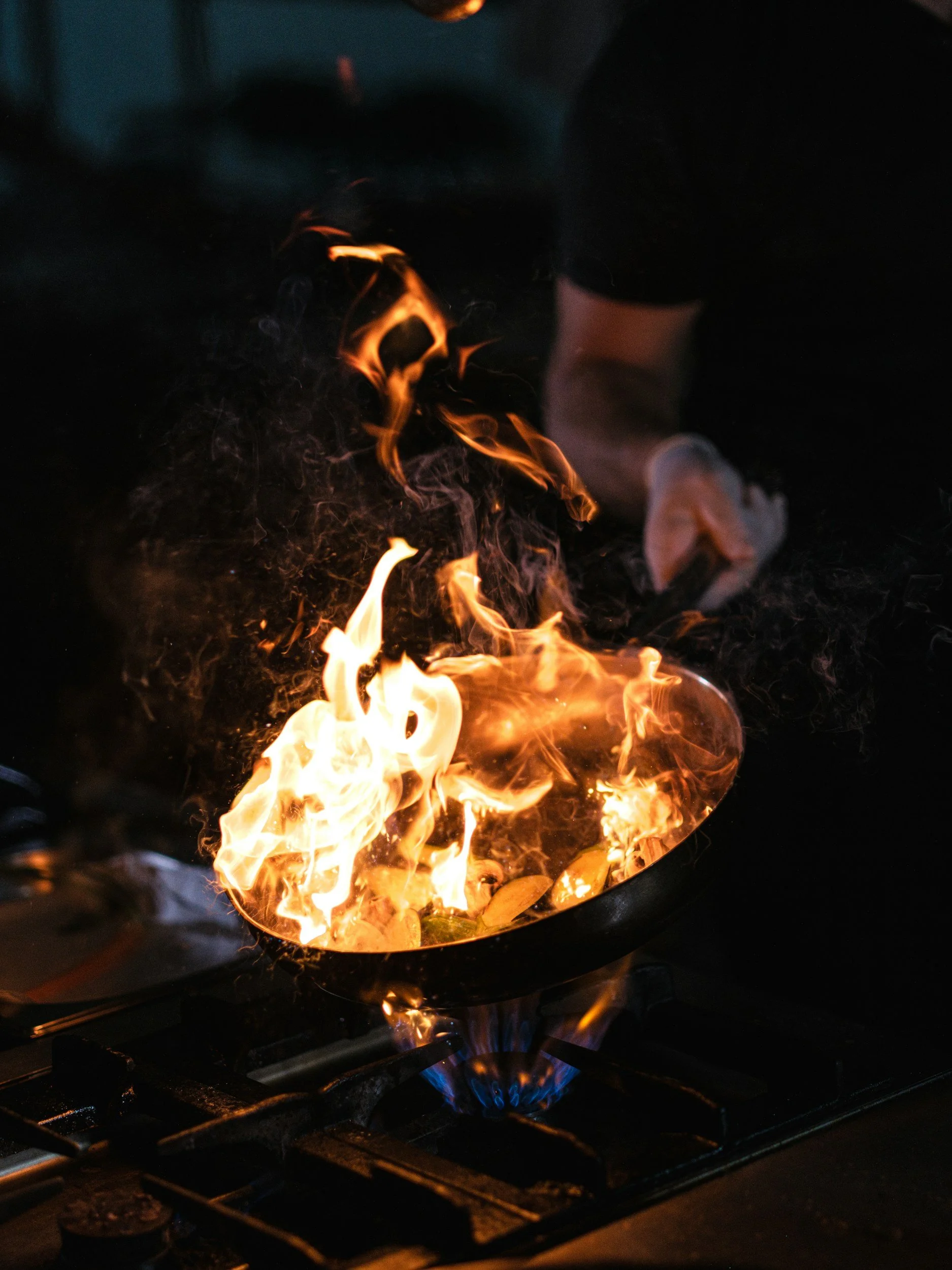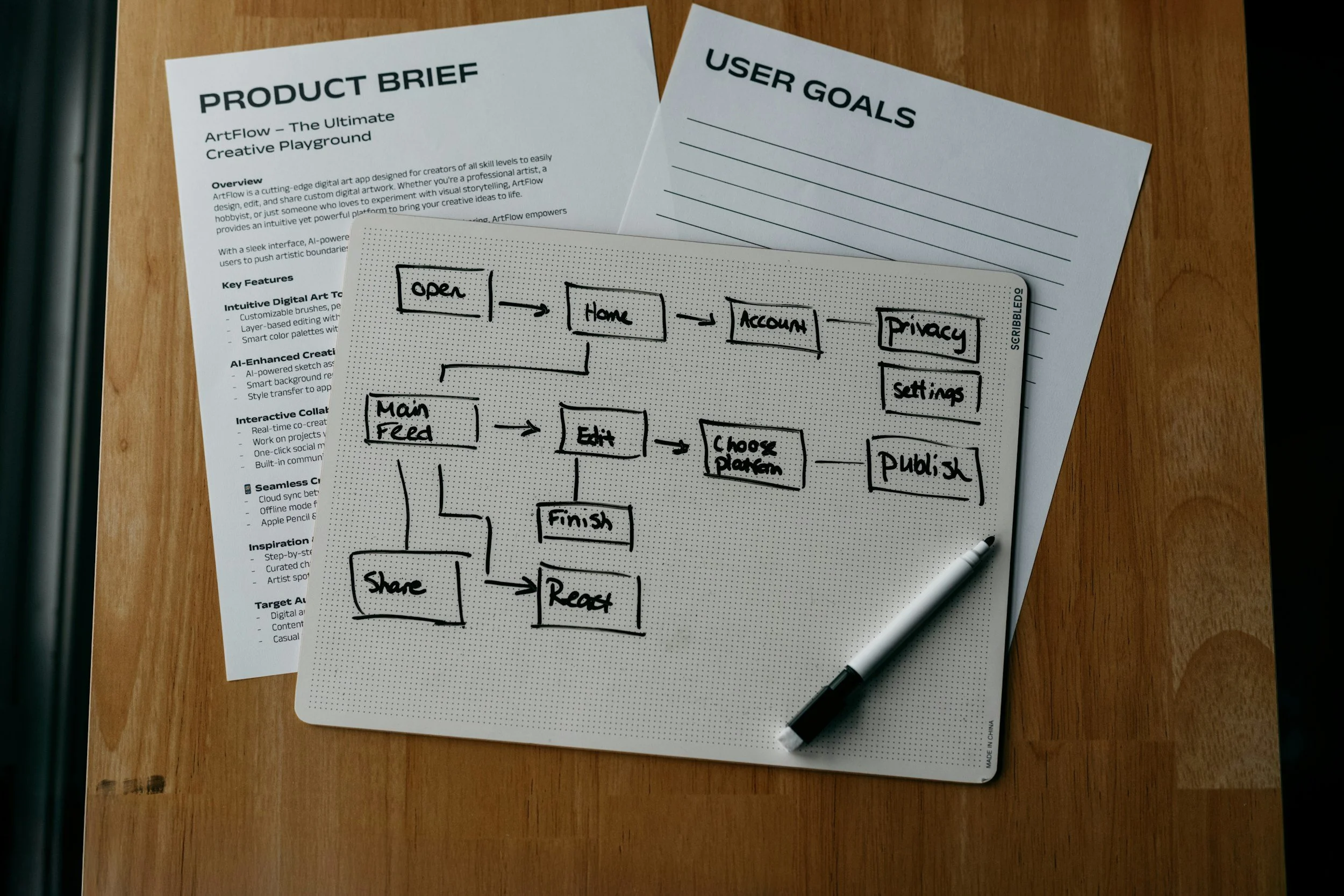Job Overview
Description of the Role: The Executive Chef is a pivotal role in the culinary operations of the hotel, responsible for overseeing all aspects of the kitchen's operations, menu planning, food preparation, and ensuring exceptional culinary experiences for guests.
The role of an Executive Chef encompasses a wide range of responsibilities and requires a diverse skill set. Here's a detailed description:
Culinary Leadership: The Executive Chef is the culinary leader of the establishment, responsible for creating and maintaining the culinary vision. They conceptualize menus, develop recipes, and ensure that all dishes meet high standards of taste, presentation, and quality.
Menu Planning and Development: Executive Chefs are responsible for designing menus that reflect the restaurant or hotel's concept, target audience, and seasonality. They collaborate with other departments, such as marketing and procurement, to ensure menu offerings align with market trends and guest preferences.
Food Quality and Safety: Maintaining food safety standards and ensuring food quality are paramount for an Executive Chef. They oversee food purchasing, storage, and preparation processes to minimize food waste, uphold hygiene standards, and comply with regulatory requirements.
Kitchen Management: Executive Chefs manage all aspects of the kitchen operation, including staffing, scheduling, and workflow. They recruit, train, and mentor kitchen staff, fostering a culture of teamwork, professionalism, and continuous improvement.
Cost Control and Budgeting: Effective cost management is essential for the profitability of a culinary operation. Executive Chefs develop and monitor budgets, analyze food costs, and implement strategies to optimize resource utilization while maintaining quality and profitability.
Supplier Relationships: Building and maintaining relationships with suppliers and vendors is crucial for sourcing high-quality ingredients and obtaining competitive pricing. Executive Chefs negotiate contracts, evaluate product quality, and stay informed about market trends and innovations.
Creative Innovation: Executive Chefs drive culinary innovation by experimenting with new ingredients, techniques, and presentations. They stay abreast of culinary trends, attend industry events, and collaborate with peers to keep their menus fresh and exciting.
Guest Satisfaction: Ultimately, the Executive Chef is responsible for ensuring guest satisfaction with the dining experience. They solicit feedback, address guest concerns, and strive to exceed expectations by delivering exceptional food and service.
Team Development: Investing in the professional development of kitchen staff is a priority for Executive Chefs. They provide ongoing training, coaching, and performance feedback to nurture talent, promote career growth, and maintain a skilled and motivated team.
Adaptability and Resilience: In a dynamic and fast-paced environment, Executive Chefs must remain adaptable and resilient. They handle pressure with grace, solve problems creatively, and lead by example during challenging situations.
Overall, the role of an Executive Chef is multifaceted, demanding both culinary expertise and strong leadership skills to ensure the success and reputation of the culinary operation.
Primary Responsibilities and Duties
Develop and execute innovative menus that align with the hotel's culinary concept and standards.
Supervise and lead the kitchen brigade, including hiring, training, and managing kitchen staff.
Maintain high standards of food quality, presentation, and hygiene.
Manage food costs and budgets, ensuring profitability while maintaining quality.
Collaborate with other departments to ensure seamless operations and guest satisfaction.
Stay updated with culinary trends and incorporate new techniques and ingredients into menu offerings.
Ensure compliance with health and safety regulations.
The primary responsibilities and duties of an Executive Chef revolve around leading the culinary operations of a hotel, restaurant, or other food service establishment. Here's a breakdown of the key duties:
Menu Development: Create and update menus that align with the establishment's concept, target market, and seasonality. Develop recipes, considering taste, presentation, and nutritional value.
Kitchen Management: Oversee all aspects of kitchen operations, including staffing, scheduling, and workflow management. Ensure the kitchen operates efficiently and maintains high standards of cleanliness, organization, and safety.
Food Quality Control: Maintain strict quality control measures to ensure that all food prepared and served meets established standards for taste, appearance, and safety. Monitor food storage, handling, and preparation practices to minimize waste and prevent contamination.
Cost Management: Develop and manage budgets for food and labor costs. Control expenses by optimizing inventory levels, minimizing waste, and negotiating favorable pricing with suppliers.
Staff Supervision and Training: Recruit, train, and supervise kitchen staff, including chefs, cooks, and assistants. Provide ongoing coaching and performance feedback to foster a positive work environment and promote skill development.
Menu Costing and Pricing: Calculate food costs for menu items and establish pricing strategies to ensure profitability while remaining competitive in the market. Monitor sales trends and adjust menu prices as needed.
Supplier and Vendor Management: Source high-quality ingredients and negotiate contracts with suppliers and vendors. Build and maintain relationships to ensure timely delivery of fresh ingredients and favorable pricing.
Culinary Innovation: Stay current with industry trends and innovations in culinary techniques, ingredients, and presentation styles. Experiment with new dishes and menu concepts to keep offerings fresh and appealing to guests.
Guest Satisfaction: Focus on delivering exceptional dining experiences that exceed guest expectations. Solicit feedback and address any concerns or complaints promptly and professionally.
Compliance and Regulations: Ensure compliance with health and safety regulations, sanitation standards, and food handling protocols. Stay informed about local health codes and industry best practices to maintain a safe and sanitary kitchen environment.
Event Planning and Execution: Collaborate with other departments to plan and execute special events, such as banquets, weddings, and culinary promotions. Coordinate menu selections, staffing requirements, and logistical details to ensure successful events.
Leadership and Communication: Provide strong leadership and direction to kitchen staff, fostering a culture of teamwork, accountability, and excellence. Communicate effectively with other departments, management, and external stakeholders to coordinate operations and achieve shared goals.
These primary responsibilities and duties highlight the diverse skill set and leadership qualities required of an Executive Chef to effectively manage a culinary operation and deliver memorable dining experiences to guests.
Qualifications and Experience
Required Educational Background:
Bachelor's degree or equivalent in Culinary Arts or related field.
Minimum Years of Experience Required:
Typically requires a minimum of 8-10 years of progressive experience in culinary roles, including supervisory or management positions.
Specific Skills and Competencies Needed:
Strong leadership and management abilities.
Excellent culinary skills and knowledge of various cuisines.
Budgeting and financial management skills.
Creativity and innovation in menu planning.
Strong communication and interpersonal skills.
Ability to thrive in a fast-paced environment.
Qualifications and experience are crucial for aspiring Executive Chefs to excel in their roles. Here's a detailed overview of the typical qualifications and experience expected:
Culinary Education: A formal education in culinary arts is highly recommended, such as a degree or diploma from a reputable culinary school or institute. Coursework typically covers cooking techniques, food safety, nutrition, menu planning, and kitchen management.
Professional Experience: Extensive experience working in various culinary roles is essential for aspiring Executive Chefs. This often includes several years of hands-on experience as a Sous Chef, Chef de Cuisine, or other senior kitchen positions, gradually gaining responsibility and leadership experience.
Technical Skills: Executive Chefs must possess advanced culinary skills and expertise in various cooking techniques, cuisines, and styles. They should have a thorough understanding of food preparation, flavor profiles, and plating techniques to create high-quality dishes consistently.
Leadership Abilities: Strong leadership skills are critical for Executive Chefs to effectively manage kitchen staff and operations. They must be able to inspire and motivate team members, delegate tasks efficiently, and resolve conflicts professionally.
Communication Skills: Effective communication is essential for Executive Chefs to convey instructions clearly, collaborate with other departments, and interact with staff, guests, and suppliers. They should be able to communicate expectations, provide feedback, and address concerns diplomatically.
Organizational Skills: Executive Chefs need excellent organizational skills to manage multiple tasks simultaneously, prioritize responsibilities, and maintain a structured and efficient kitchen operation. They should be adept at planning, scheduling, and problem-solving to ensure smooth workflow and timely service.
Business Acumen: A solid understanding of business principles and financial management is crucial for Executive Chefs to control costs, maximize profitability, and contribute to the overall success of the establishment. This includes budgeting, menu costing, pricing strategies, and inventory management.
Creativity and Innovation: Executive Chefs should have a creative flair and a passion for culinary innovation. They should be able to develop innovative menu concepts, experiment with new ingredients and techniques, and adapt to changing culinary trends to keep offerings fresh and exciting.
Adaptability and Resilience: The hospitality industry is fast-paced and dynamic, requiring Executive Chefs to remain adaptable and resilient in challenging situations. They should be able to handle pressure calmly, think quickly on their feet, and maintain a positive attitude amid demanding circumstances.
Continuous Learning: Executive Chefs should be committed to continuous learning and professional development to stay updated on industry trends, new culinary techniques, and best practices. This may involve attending workshops, seminars, and culinary events, as well as seeking mentorship from experienced chefs.
Overall, a combination of formal education, hands-on experience, leadership abilities, and a passion for culinary excellence is essential for aspiring Executive Chefs to succeed in their careers and make a meaningful impact in the hospitality industry.
Leadership and Management: The Executive Chef provides leadership to the kitchen team, sets standards for performance, and fosters a positive work environment. They are responsible for training, motivating, and guiding the team to achieve culinary excellence.
Collaboration: The Executive Chef works closely with other departments such as F&B, purchasing, and maintenance to ensure smooth operations. They also liaise with vendors and suppliers to source high-quality ingredients and equipment.
Creativity and Innovation: Innovation is key to success in this role, as the Executive Chef is responsible for creating exciting and memorable dining experiences for guests. They constantly explore new ingredients, techniques, and presentations to keep menus fresh and engaging.
Career Path
The career path to becoming an Executive Chef typically involves a combination of education, hands-on experience, and career progression within the culinary industry. Here's a general outline of the typical career path:
Culinary Education: Many aspiring chefs begin their journey by pursuing formal culinary education at a reputable culinary school or institute. This may involve earning a degree, diploma, or certificate in culinary arts, which provides foundational knowledge and skills in cooking techniques, food safety, menu planning, and kitchen management.
Entry-Level Positions: After completing culinary education, individuals often start their careers in entry-level positions in professional kitchens, such as line cook, prep cook, or kitchen assistant. In these roles, they gain practical experience working under the supervision of experienced chefs, learning the fundamentals of kitchen operations and culinary techniques.
Progression to Sous Chef: With dedication, hard work, and demonstrated culinary skills, aspiring chefs may advance to the position of Sous Chef. As a Sous Chef, they work closely with the Executive Chef, assisting in menu development, food preparation, and kitchen management. This role provides valuable leadership experience and prepares individuals for higher-level positions.
Chef de Cuisine or Head Chef: After gaining significant experience as a Sous Chef, individuals may have the opportunity to advance to the role of Chef de Cuisine or Head Chef. In this position, they assume greater responsibility for menu development, kitchen operations, and staff management. Chef de Cuisine or Head Chef roles often involve overseeing a specific kitchen or culinary concept within a restaurant or hotel.
Executive Chef: The pinnacle of a chef's career is achieving the role of Executive Chef. Executive Chefs are the culinary leaders of their establishments, responsible for overseeing all aspects of kitchen operations, menu development, staff management, and food quality control. To attain this position, individuals must have extensive culinary experience, strong leadership skills, and a track record of success in previous roles.
Continued Growth and Development: Even after reaching the position of Executive Chef, culinary professionals continue to grow and develop in their careers. This may involve pursuing additional education or certifications, participating in culinary competitions or events, networking with industry peers, and staying updated on emerging culinary trends and innovations.
Entrepreneurship or Consulting: Some experienced chefs may choose to pursue entrepreneurial ventures, such as opening their own restaurants or catering businesses. Others may transition into consulting roles, where they provide culinary expertise and guidance to other food service establishments.
Overall, the career path to becoming an Executive Chef is demanding but rewarding, requiring dedication, passion, and a commitment to continuous learning and professional growth. With perseverance and hard work, aspiring chefs can achieve their goals and make a significant impact in the culinary industry.
Growth Opportunities: Potential career progression includes roles such as Corporate Executive Chef, Culinary Director, or Food and Beverage Director. Additional training or certifications in hospitality management or culinary arts can enhance career prospects.
Typical Interview Questions
Interviews for the position of Executive Chef typically focus on assessing candidates' culinary expertise, leadership abilities, management skills, and fit for the organization's culture. Here are some typical interview questions asked of candidates applying for this designation:
Can you walk us through your culinary background and experience?
What motivated you to pursue a career in culinary arts, and what inspired you to become an Executive Chef?
Describe your approach to menu development and how you ensure that your menus appeal to the target market.
How do you stay current with culinary trends and innovations, and how do you incorporate them into your menu offerings?
Can you share an example of a challenging situation you encountered in a previous kitchen leadership role and how you handled it?
How do you approach staff training, development, and performance management in the kitchen?
What strategies do you use to control food costs, minimize waste, and optimize kitchen efficiency?
Describe a time when you had to resolve a conflict or disagreement among kitchen staff members. How did you approach the situation?
How do you ensure food safety and sanitation standards are maintained in the kitchen?
Can you provide examples of how you have successfully collaborated with other departments, such as front-of-house staff or management?
What is your leadership style, and how do you motivate and inspire your kitchen team?
How do you handle pressure and maintain composure during busy service periods or unexpected challenges?
Can you discuss a particularly successful menu or culinary promotion you implemented in a previous role? What made it successful?
How do you approach feedback from guests, and how do you use it to improve the dining experience?
Why are you interested in joining our organization, and what do you believe you can contribute to our culinary team?
These interview questions are designed to assess candidates' qualifications, experience, problem-solving abilities, and cultural fit for the organization. Candidates should prepare thoughtful responses that demonstrate their expertise, leadership capabilities, and passion for culinary excellence.
Read Executive Chef Interviews
Exclusive Interview | Yashasvi Modi - CEO and Chef De Cuisine, The Burrow
Exclusive Interview | Rajeev Kumar, Executive Chef, Courtyard by Marriott Bengaluru Hebbal
Exclusive Interview | Gaurav Ekal, Head Chef, Concept Cafe LLP, Goa
Exclusive Interview | Chef Jodha, ITC Grand Bharat
Exclusive Interview | Chef Dheeraj Mathur, Cluster Executive Chef, Radisson Blu Kaushambi, Delhi NCR
Exclusive Interview | Manish Khot, Executive Chef, BLU Oasis Hotel & Resort, Dubai - UAE
Exclusive Interview | Chef Vadim Shin- Yazu Restaurant Brand Chef
Exclusive Interview | Kalpesh Kature, Executive Chef, Renaissance Hotel Ahmedabad
Exclusive Interview | Chef Tijo Thomas, Executive Chef, Taj Corbett Resort & Spa
Exclusive Interview | Dinesh Mhatre,Executive Chef, The Orchid Hotel Pune
Exclusive Interview | Agnibh Mudi, Corporate Chef at one8 Commune by True Palate Hospitality
Exclusive Interview | Chef Prateek Basu, Director of Culinary, Wyndham LATAMC Region.
Exclusive Interview | Bharathan V, Executive Chef, HMSHost Services
Exclusive Interview | Chef Siddarth Noronha, Executive Chef, Sheraton Grand Pune
Exclusive Interview | Chef Ishant Khanna, Corporate Chef, Badmaash, VRO Hospitality
Exclusive Interview | Chef Mani Mohan Pathak, Executive Chef, Pilibhit House - IHCL SeleQtions
Exclusive Interview | Chef Sunil Dutt , Culinary Director at W Goa





























